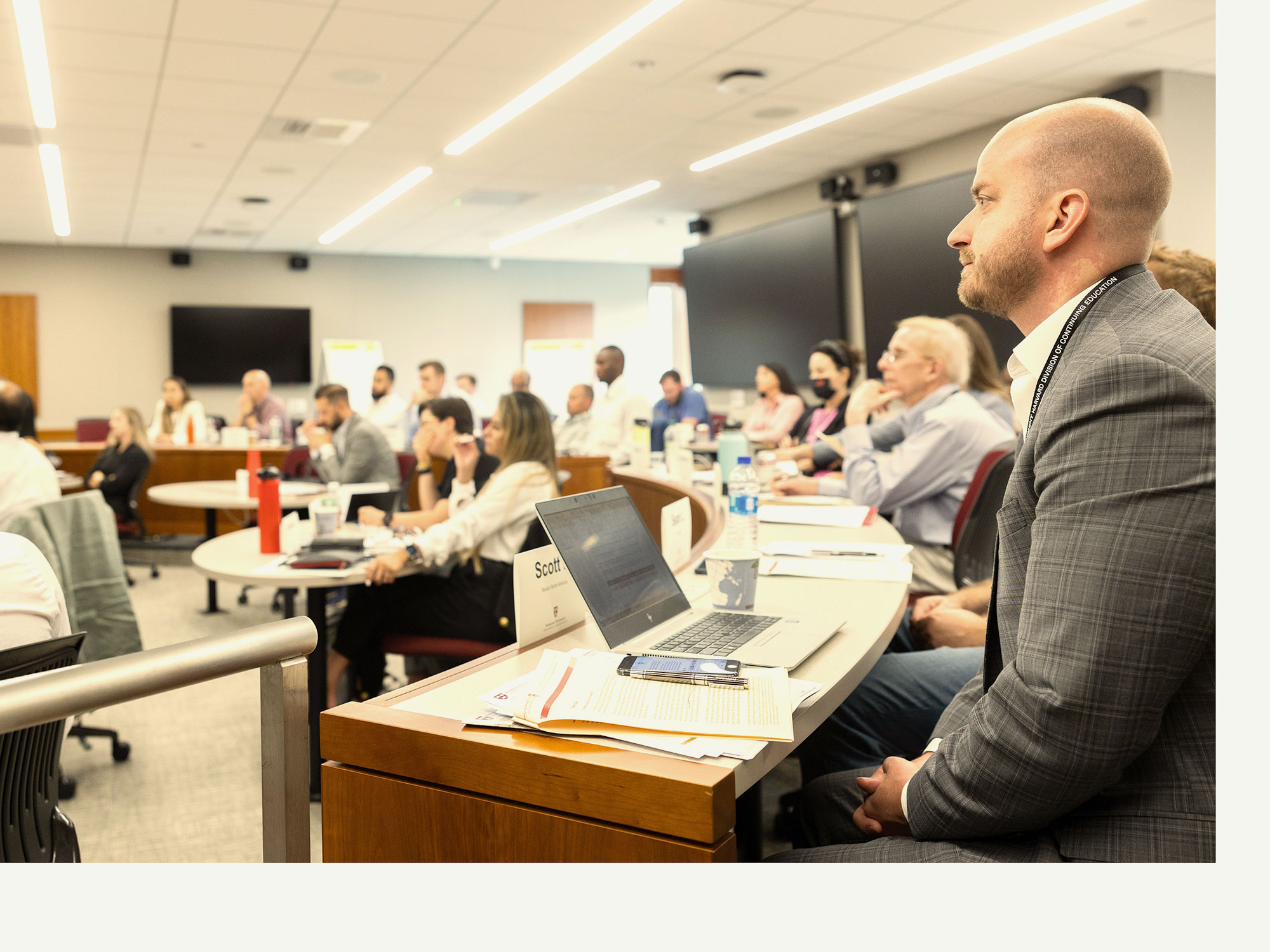What You'll Learn
Data and AI literacy have become essential competencies for professionals across every industry. As more organizations rely on data-driven decision-making to achieve their goals, the ability to understand, interpret, and apply the right data sets and AI tools is critical to driving impact. This program helps you harness those capabilities by providing a strategic framework to make more informed decisions, communicate insights effectively, and deliver targeted, strategic solutions in an increasingly data-centric work environment.
You’ll learn how to develop data-driven strategies rooted in a deep understanding of your organization’s mission, challenges, clients, and stakeholders. The curriculum emphasizes practical application and uses user-centered design principles to help you think critically about how to approach complex organizational problems — and how to design solutions that deliver measurable results.
While new data and AI tools offer exciting opportunities, they also present risks, including ethical concerns, unintended consequences, and misalignment with organizational values. This program will help you identify and avoid these common pitfalls. You’ll explore how to evaluate tools and approaches through a strategic lens, ensuring that your use of data and AI aligns with your organization’s needs and goals.
Participants from business, nonprofit, and government sectors have used this approach to strengthen their decision-making, improve service delivery, and lead more effectively in data-rich environments. Whether you’re responsible for shaping strategy, implementing initiatives, or driving innovation, this program will equip you with the knowledge and communication strategies to use data and AI responsibly and effectively.
Program Benefits
- Learn to apply data and AI to forecasting, marketing, product development, business intelligence, and other core strategic goals, positioning yourself as a decisive data-driven leader.
- Understand core concepts related to data for decision making such as categories of data, standards, sources, collection, management, and applications.
- Identify opportunities to leverage data and AI for your organization and identify the most valuable data types and data sets.
- Effectively communicate data- and AI-driven strategies using a clear strategic framework to senior leadership, ensuring alignment and advancing strategic initiatives.
- Earn a Certificate of Completion from the Harvard Division of Continuing Education.
Who Should Enroll
This program is ideal for current and future managers who want a clear framework for understanding and applying data strategically and for communicating those plans effectively to key stakeholders.
Non-technical staff who want to interpret data resources and communicate more effectively about data and AI will benefit, as will technical staff who want to design technical solutions that align with strategic goals and leadership priorities. This program does not require previous technical knowledge or expertise.
Note: This is not a data science program and will not teach technical skills in managing data or developing AI products.
Topics Covered
- Types of data and sources to make effective decisions at different organizational levels
- How organizations leverage data and AI to improve their operations and develop new products and services
- Relevant, high-value sources for government, business, and non-governmental organizations (NGO) datasets
- How to use customer segments and personas to identify opportunities for data- and AI-driven decision-making
- Value proposition canvas for using data and AI to achieve organizational goals
June Schedule
Day 1
- History of Data and Current Trends
- How Organizations Use Data for Decision-Making
Day 2
- Data Lifecycle and Key Considerations
- Utilizing Data
Instructors
-
![Laura Manley]()
Laura Manley
Laura Manley is the Executive Director of the Shorenstein Center on Media, Politics and Public Policy at the Harvard Kennedy School. She is also an Instructor at the Harvard Extension School. -
![Joel Gurin]()
Joel Gurin
Joel is president and founder of the Center for Open Data Enterprise, a Washington-based nonprofit that works to maximize the value of open data as a public resource. He previously served as chair of the White House Task Force on Smart Disclosure and as chief of the Consumer and Governmental Affairs Bureau of the US Federal Communications Commission.


